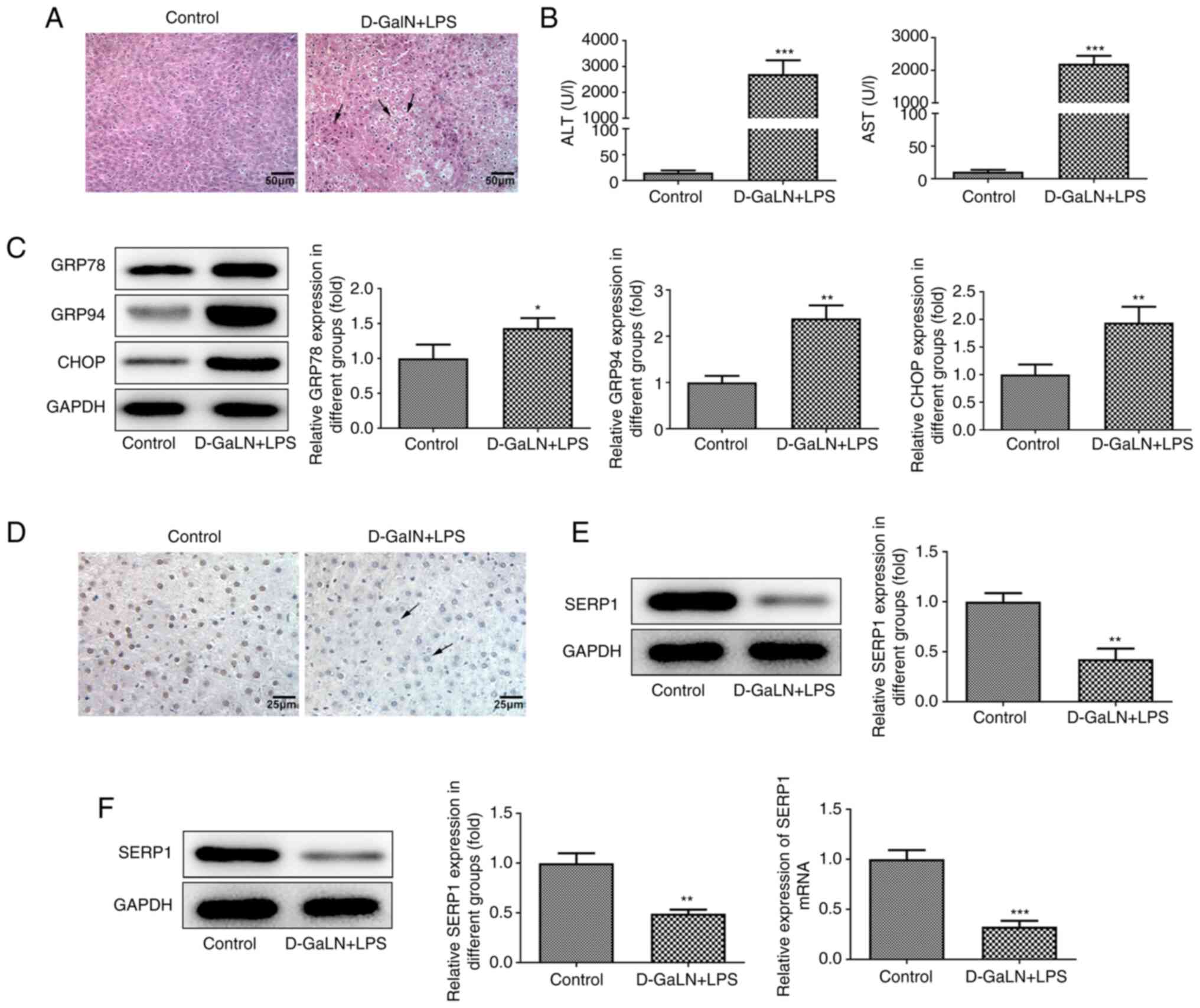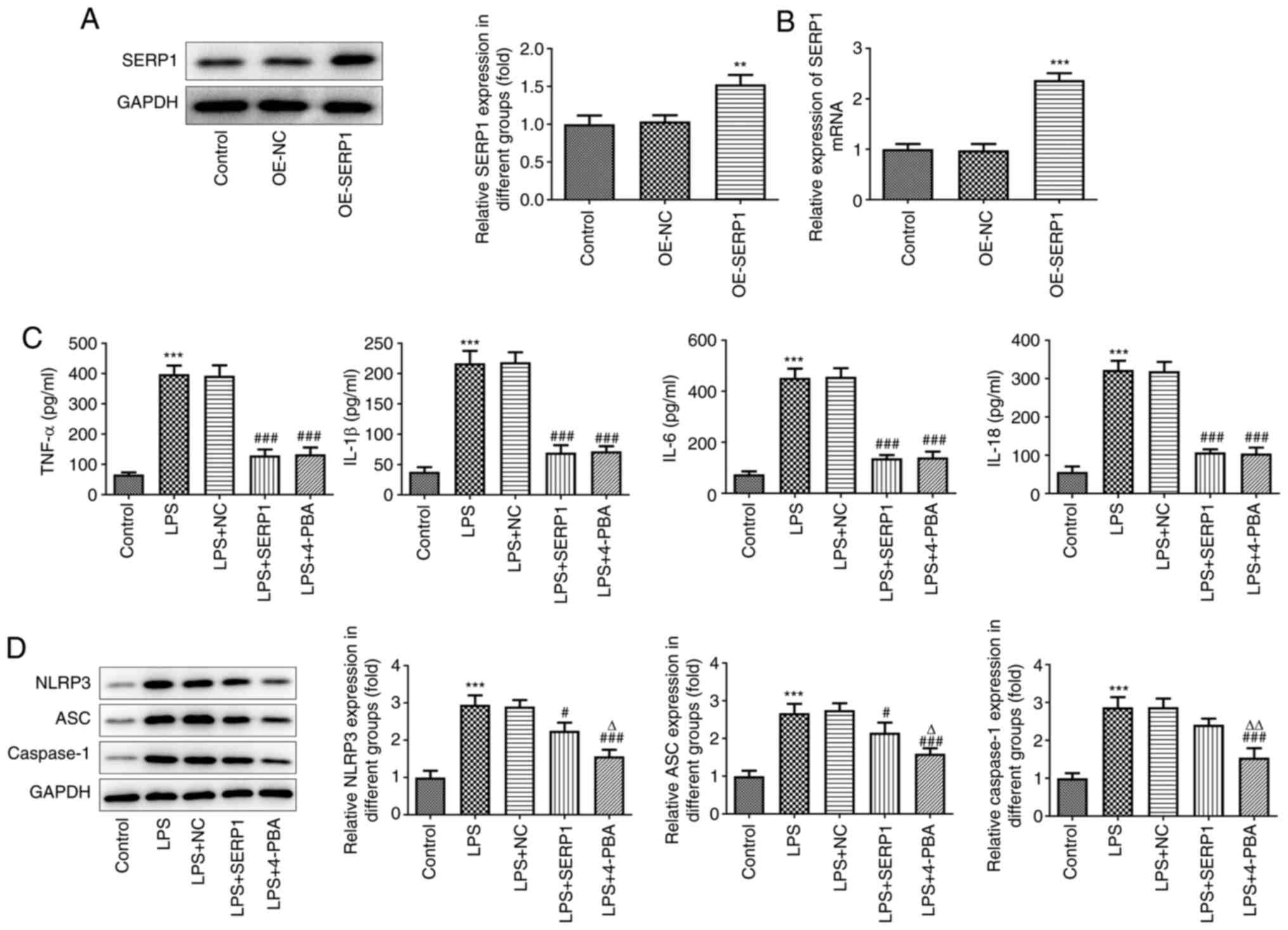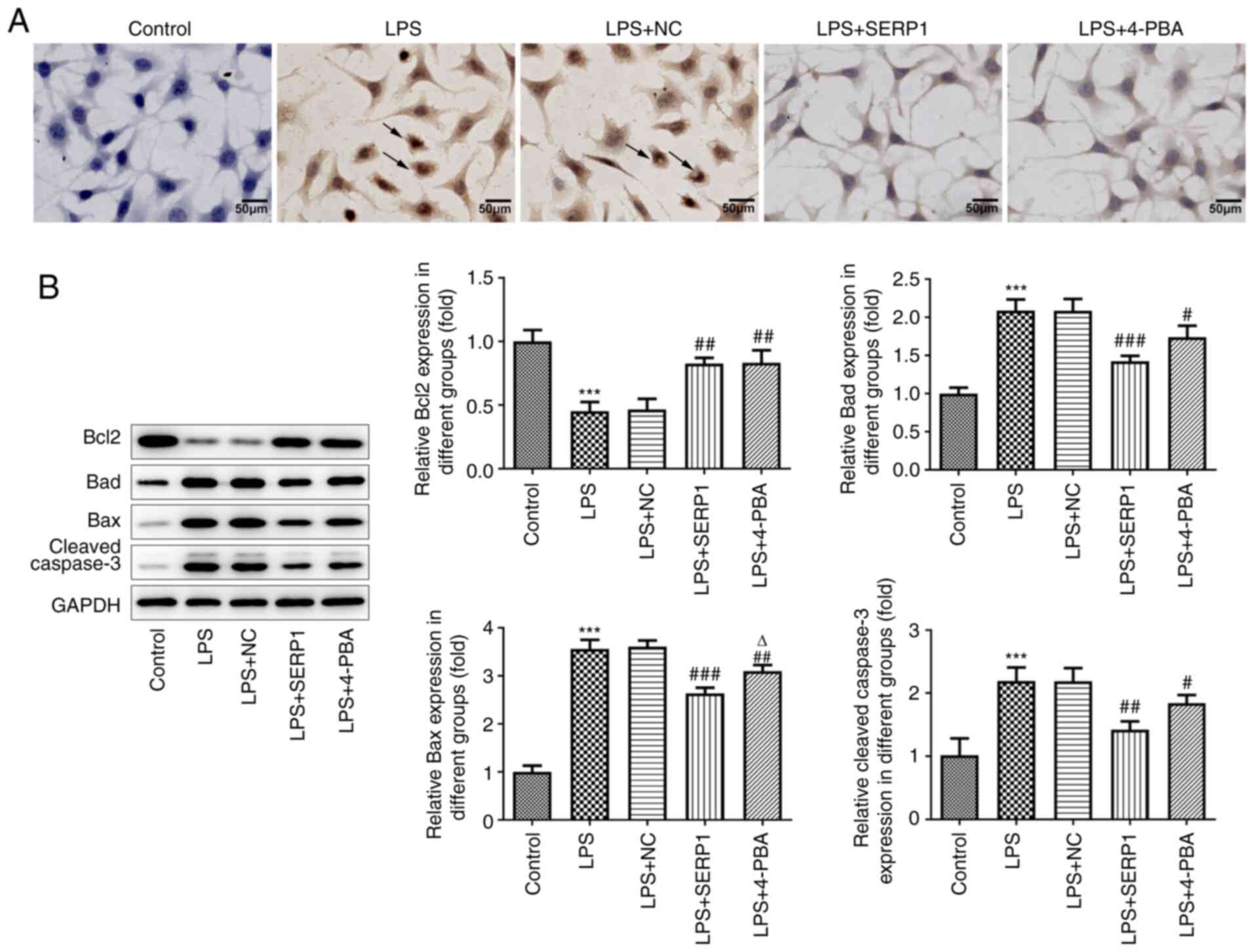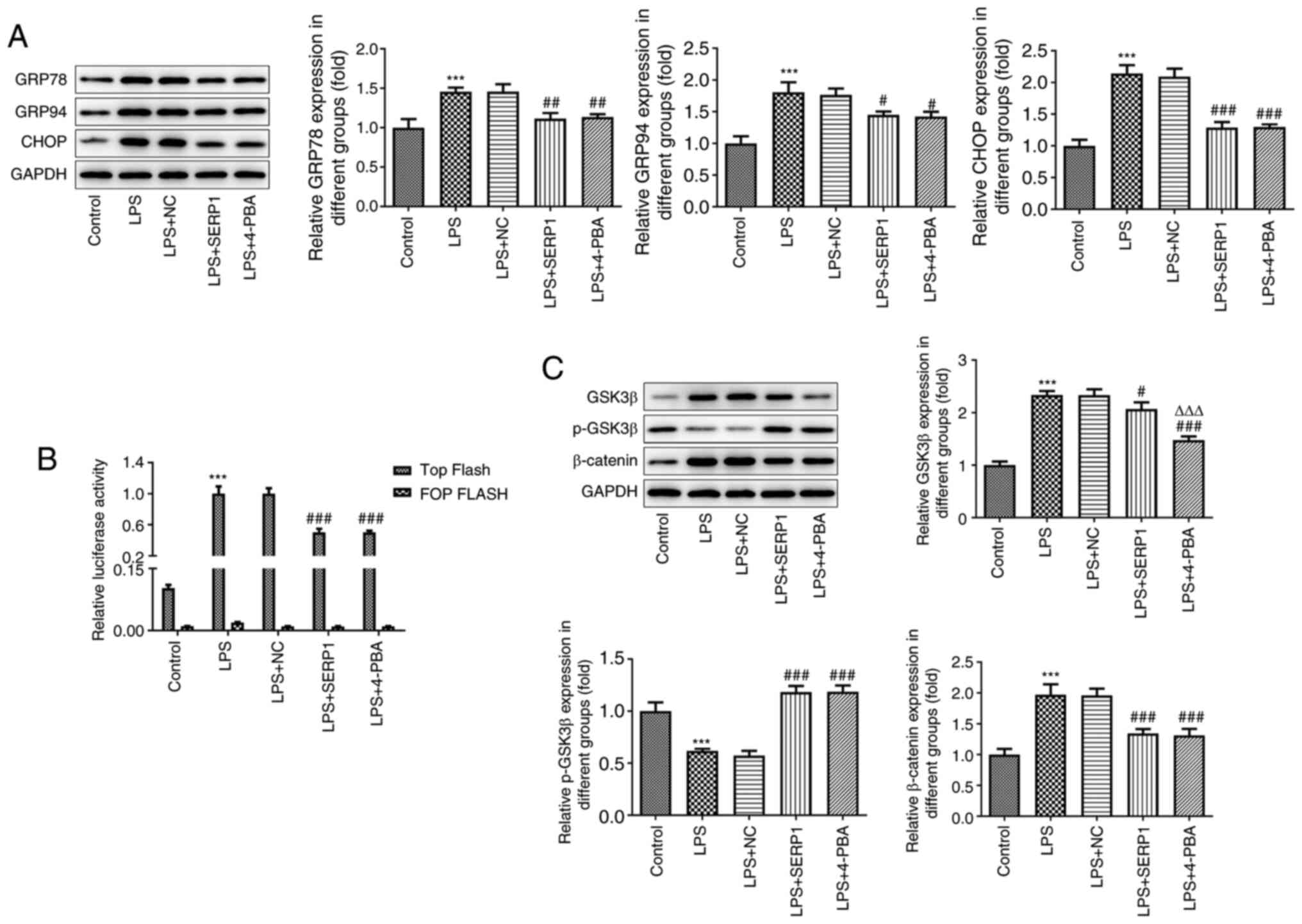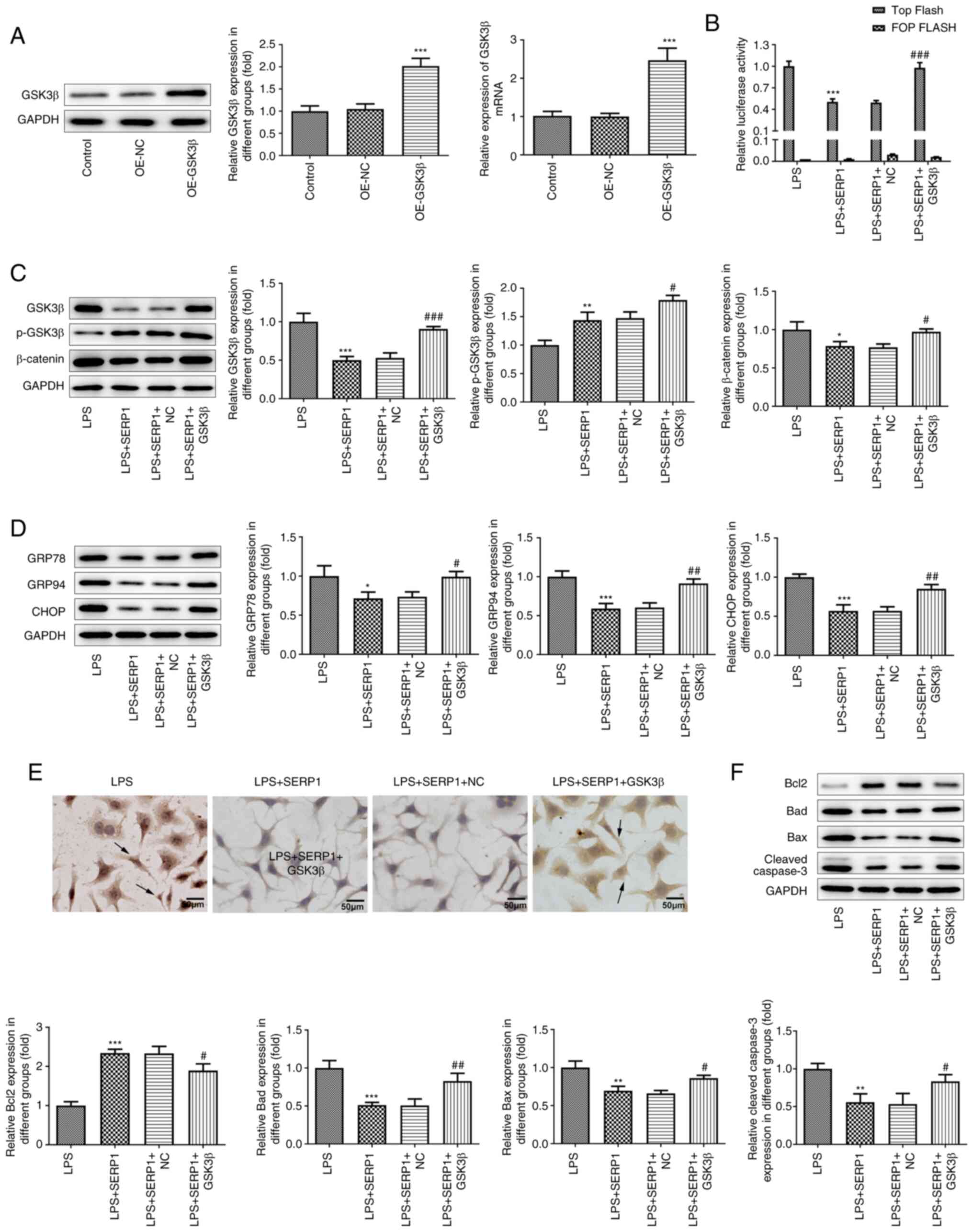|
1
|
Wu G, Win S, Than TA, Chen P and Kaplowitz
N: Gut microbiota and liver injury (I)-acute liver injury. Adv Exp
Med Biol. 1238:23–37. 2020. View Article : Google Scholar : PubMed/NCBI
|
|
2
|
He GW, Günther C, Kremer AE, Thonn V,
Amann K, Poremba C, Neurath MF, Wirtz S and Becker C:
PGAM5-mediated programmed necrosis of hepatocytes drives acute
liver injury. Gut. 66:716–723. 2017. View Article : Google Scholar : PubMed/NCBI
|
|
3
|
Hassan A and Fontana RJ: The diagnosis and
management of idiosyncratic drug-induced liver injury. Liver Int.
39:31–41. 2019. View Article : Google Scholar : PubMed/NCBI
|
|
4
|
Katarey D and Verma S: Drug-induced liver
injury. Clin Med (Lond). 16 (Suppl 6):s104–s109. 2016. View Article : Google Scholar : PubMed/NCBI
|
|
5
|
Hosseini N, Shor J and Szabo G: Alcoholic
hepatitis: A review. Alcohol Alcohol. 54:408–16. 2019. View Article : Google Scholar : PubMed/NCBI
|
|
6
|
Zhao RH, Shi Y, Zhao H, Wu W and Sheng JF:
Acute-on-chronic liver failure in chronic hepatitis B: An update.
Expert Rev Gastroenterol Hepatol. 12:341–350. 2018. View Article : Google Scholar : PubMed/NCBI
|
|
7
|
Guzel E, Arlier S, Guzeloglu-Kayisli O,
Tabak MS, Ekiz T, Semerci N, Larsen K, Schatz F, Lockwood CJ and
Kayisli UA: Endoplasmic reticulum stress and homeostasis in
reproductive physiology and pathology. Int J Mol Sci. 18:7922017.
View Article : Google Scholar : PubMed/NCBI
|
|
8
|
Fernández A, Ordóñez R, Reiter RJ,
González-Gallego J and Mauriz JL: Melatonin and endoplasmic
reticulum stress: Relation to autophagy and apoptosis. J Pineal
Res. 59:292–307. 2015. View Article : Google Scholar : PubMed/NCBI
|
|
9
|
Oakes SA and Papa FR: The role of
endoplasmic reticulum stress in human pathology. Annu Rev Pathol.
10:173–194. 2015. View Article : Google Scholar : PubMed/NCBI
|
|
10
|
Song M and Cubillos-Ruiz JR: Endoplasmic
reticulum stress responses in intratumoral immune cells:
Implications for cancer immunotherapy. Trends Immunol. 40:128–141.
2019. View Article : Google Scholar : PubMed/NCBI
|
|
11
|
Yilmaz E: Endoplasmic reticulum stress and
obesity. Adv Exp Med Biol. 960:261–276. 2017. View Article : Google Scholar : PubMed/NCBI
|
|
12
|
Lebeaupin C, Vallée D, Hazari Y, Hetz C,
Chevet E and Bailly-Maitre B: Endoplasmic reticulum stress
signalling and the pathogenesis of non-alcoholic fatty liver
disease. J Hepatol. 69:927–947. 2018. View Article : Google Scholar : PubMed/NCBI
|
|
13
|
Zhao YF, Gao Y, Wu XF, Wang JG and Duan
LX: Protective effect of earthworm active ingredients against
endoplasmic reticulum stress-induced acute liver injury in mice.
Zhongguo Zhong Yao Za Zhi. 42:1183–1188. 2017.(In Chinese).
PubMed/NCBI
|
|
14
|
Wang S, Luan J and Lv X: Inhibition of
endoplasmic reticulum stress attenuated ethanol-induced exosomal
miR-122 and Acute liver injury in mice. Alcohol Alcohol.
54:465–471. 2019. View Article : Google Scholar : PubMed/NCBI
|
|
15
|
Faria D, Lentze N, Almaça J, Luz S,
Alessio L, Tian Y, Martins JP, Cruz P, Schreiber R, Rezwan M, et
al: Regulation of ENaC biogenesis by the stress response protein
SERP1. Pflugers Arch. 463:819–827. 2012. View Article : Google Scholar : PubMed/NCBI
|
|
16
|
Jung S, Hyun J, Nah J, Han J, Kim SH, Park
J, Oh Y, Gwon Y, Moon S, Jo DG and Jung YK: SERP1 is an assembly
regulator of γ-secretase in metabolic stress conditions. Sci
Signal. 13:eaax89492020. View Article : Google Scholar : PubMed/NCBI
|
|
17
|
Hori O, Miyazaki M, Tamatani T, Ozawa K,
Takano K, Okabe M, Ikawa M, Hartmann E, Mai P, Stern DM, et al:
Deletion of SERP1/RAMP4, a component of the endoplasmic reticulum
(ER) translocation sites, leads to ER stress. Mol Cell Biol.
26:4257–4267. 2006. View Article : Google Scholar : PubMed/NCBI
|
|
18
|
Zhang L, Ren F, Zhang X, Wang X, Shi H,
Zhou L, Zheng S, Chen Y, Chen D, Li L, et al: Peroxisome
proliferator-activated receptor alpha acts as a mediator of
endoplasmic reticulum stress-induced hepatocyte apoptosis in acute
liver failure. Dis Model Mech. 9:799–809. 2016.PubMed/NCBI
|
|
19
|
Ren F, Zhou L, Zhang X, Wen T, Shi H, Xie
B, Li Z, Chen D, Wang Z and Duan Z: Endoplasmic reticulum
stress-activated glycogen synthase kinase 3β aggravates liver
inflammation and hepatotoxicity in mice with acute liver failure.
Inflammation. 38:1151–1165. 2015. View Article : Google Scholar : PubMed/NCBI
|
|
20
|
Ren F, Yang B, Zhang X, Wen T, Wang X, Yin
J, Piao Z, Zheng S, Zhang J, Chen Y, et al: Role of endoplasmic
reticulum stress in D-GalN/LPS-induced acute liver failure.
Zhonghua Gan Zang Bing Za Zhi. 22:364–368. 2014.(In Chinese).
PubMed/NCBI
|
|
21
|
Livak KJ and Schmittgen TD: Analysis of
relative gene expression data using real-time quantitative PCR and
the 2(−Delta Delta C(T)) method. Methods. 25:402–408. 2001.
View Article : Google Scholar : PubMed/NCBI
|
|
22
|
Cao P, Sun J, Sullivan MA, Huang X, Wang
H, Zhang Y, Wang N and Wang K: Angelica sinensis polysaccharide
protects against acetaminophen-induced acute liver injury and cell
death by suppressing oxidative stress and hepatic apoptosis in vivo
and in vitro. Int J Biol Macromol. 111:1133–1139. 2018. View Article : Google Scholar : PubMed/NCBI
|
|
23
|
Trefts E, Gannon M and Wasserman DH: The
liver. Curr Biol. 27:R1147–R1151. 2017. View Article : Google Scholar : PubMed/NCBI
|
|
24
|
Lupberger J, Croonenborghs T, Roca Suarez
AA, Van Renne N, Jühling F, Oudot MA, Virzì A, Bandiera S, Jamey C,
Meszaros G, et al: Combined analysis of metabolomes, proteomes, and
transcriptomes of hepatitis c virus-infected cells and liver to
identify pathways associated with disease development.
Gastroenterology. 157:537–551.e9. 2019. View Article : Google Scholar : PubMed/NCBI
|
|
25
|
Kleiner DE: Drug-induced liver injury: The
hepatic pathologist's approach. Gastroenterol Clin North Am.
46:273–296. 2017. View Article : Google Scholar : PubMed/NCBI
|
|
26
|
Jothimani D, Venugopal R, Abedin MF,
Kaliamoorthy I and Rela M: COVID-19 and the liver. J Hepatol.
73:1231–1240. 2020. View Article : Google Scholar : PubMed/NCBI
|
|
27
|
Li R, Yang W, Yin Y, Zhang P, Wang Y and
Tao K: Protective role of 4-Octyl itaconate in murine
LPS/D-GalN-induced acute liver failure via inhibiting inflammation,
oxidative stress, and apoptosis. Oxid Med Cell Longev.
2021:99320992021.PubMed/NCBI
|
|
28
|
Pan CW, Yang SX, Pan ZZ, Zheng B, Wang JZ,
Lu GR, Xue ZX and Xu CL: Andrographolide ameliorates
d-galactosamine/lipopolysaccharide-induced acute liver injury by
activating Nrf2 signaling pathway. Oncotarget. 8:41202–41210. 2017.
View Article : Google Scholar : PubMed/NCBI
|
|
29
|
Ghiasi SM, Dahlby T, Hede Andersen C,
Haataja L, Petersen S, Omar-Hmeadi M, Yang M, Pihl C, Bresson SE,
Khilji MS, et al: Endoplasmic reticulum chaperone glucose-regulated
protein 94 is essential for proinsulin handling. Diabetes.
68:747–760. 2019. View Article : Google Scholar : PubMed/NCBI
|
|
30
|
Yi S, Chen K, Zhang L, Shi W, Zhang Y, Niu
S, Jia M, Cong B and Li Y: Endoplasmic reticulum stress is involved
in stress-induced hypothalamic neuronal injury in rats via the
PERK-ATF4-CHOP and IRE1-ASK1-JNK pathways. Front Cell Neurosci.
13:1902019. View Article : Google Scholar : PubMed/NCBI
|
|
31
|
Macen JL, Upton C, Nation N and McFadden
G: SERP1, a serine proteinase inhibitor encoded by myxoma virus, is
a secreted glycoprotein that interferes with inflammation.
Virology. 195:348–363. 1993. View Article : Google Scholar : PubMed/NCBI
|
|
32
|
Gao M, Yu T, Liu D, Shi Y, Yang P, Zhang
J, Wang J, Liu Y and Zhang X: Sepsis plasma-derived exosomal
miR-1-3p induces endothelial cell dysfunction by targeting SERP1.
Clin Sci (Lond). 135:347–365. 2021. View Article : Google Scholar : PubMed/NCBI
|
|
33
|
Junyuan Z, Hui X, Chunlan H, Junjie F,
Qixiang M, Yingying L, Lihong L, Xingpeng W and Yue Z: Quercetin
protects against intestinal barrier disruption and inflammation in
acute necrotizing pancreatitis through TLR4/MyD88/p38 MAPK and ERS
inhibition. Pancreatology. 18:742–752. 2018. View Article : Google Scholar : PubMed/NCBI
|
|
34
|
Li W, Cao T, Luo C, Cai J, Zhou X, Xiao X
and Liu S: Crosstalk between ER stress, NLRP3 inflammasome, and
inflammation. Appl Microbiol Biotechnol. 104:6129–6140. 2020.
View Article : Google Scholar : PubMed/NCBI
|
|
35
|
Sankrityayan H, Oza MJ, Kulkarni YA, Mulay
SR and Gaikwad AB: ER stress response mediates diabetic
microvascular complications. Drug Discov Today. 24:2247–2257. 2019.
View Article : Google Scholar : PubMed/NCBI
|
|
36
|
Wu Z, Wang H, Fang S and Xu C: Roles of
endoplasmic reticulum stress and autophagy on H2O2-induced
oxidative stress injury in HepG2 cells. Mol Med Rep. 18:4163–4174.
2018.PubMed/NCBI
|
|
37
|
Song J, Zhang Q, Wang S, Yang F, Chen Z,
Dong Q, Ji Q, Yuan X and Ren D: Cleavage of caspase-12 at Asp94,
mediated by endoplasmic reticulum stress (ERS), contributes to
stretch-induced apoptosis of myoblasts. J Cell Physiol.
233:9473–9487. 2018. View Article : Google Scholar : PubMed/NCBI
|
|
38
|
Li W, Li W, Leng Y, Xiong Y and Xia Z:
Ferroptosis is involved in diabetes myocardial ischemia/reperfusion
injury through endoplasmic reticulum stress. DNA Cell Biol.
39:210–225. 2020. View Article : Google Scholar : PubMed/NCBI
|
|
39
|
Shen H, Ming Y, Xu C, Xu Y, Zhao S and
Zhang Q: Deregulation of long noncoding RNA (TUG1) contributes to
excessive podocytes apoptosis by activating endoplasmic reticulum
stress in the development of diabetic nephropathy. J Cell Physiol.
Jan 22–2019.(Epub ahead of print). View Article : Google Scholar
|
|
40
|
Wang Z, Yin F, Xu J, Zhang T, Wang G, Mao
M, Wang Z, Sun W, Han J, Yang M, et al: CYT997(Lexibulin) induces
apoptosis and autophagy through the activation of mutually
reinforced ER stress and ROS in osteosarcoma. J Exp Clin Cancer
Res. 38:442019. View Article : Google Scholar : PubMed/NCBI
|
|
41
|
Fu Y, Cai J, Xi M and He Y, Zhao Y, Zheng
Y, Zhang Y, Xi J and He Y: Neuroprotection effect of astragaloside
IV from 2-DG-induced endoplasmic reticulum stress. Oxid Med Cell
Longev. 2020:97820622020. View Article : Google Scholar : PubMed/NCBI
|
|
42
|
Liu XJ, Wei J, Shang YH, Huang HC and Lao
FX: Modulation of AβPP and GSK3β by endoplasmic reticulum stress
and involvement in Alzheimer's disease. J Alzheimers Dis.
57:1157–1170. 2017. View Article : Google Scholar : PubMed/NCBI
|















